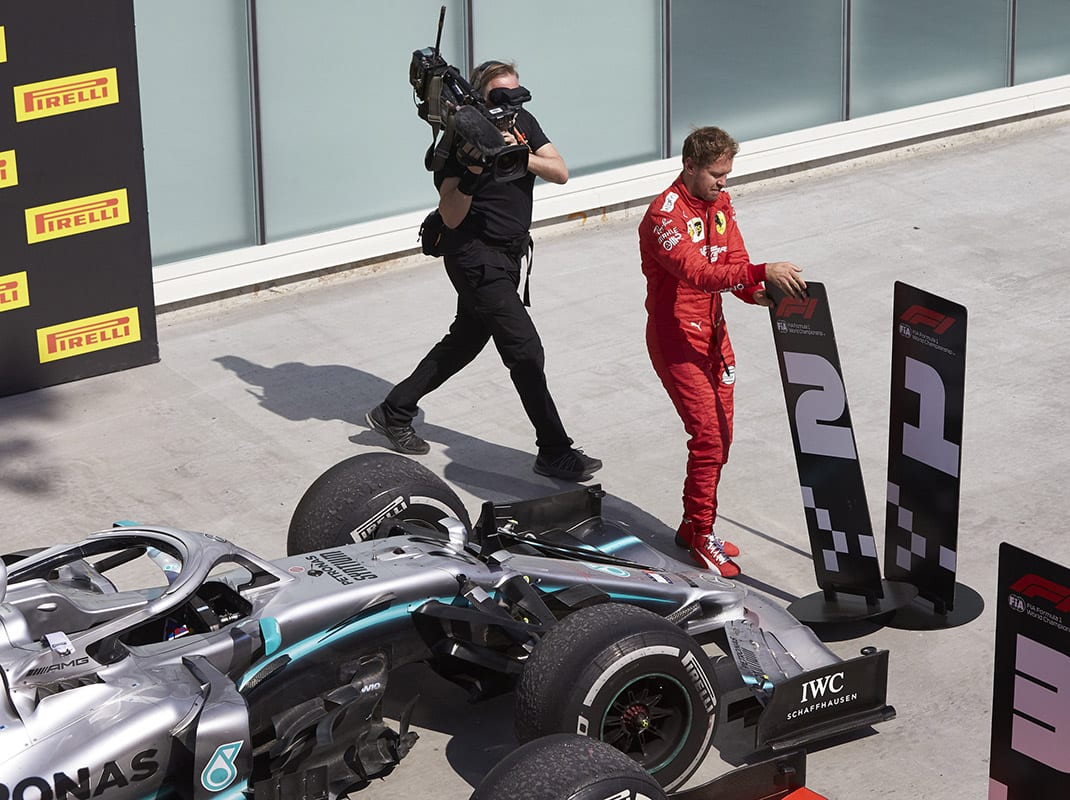The Driver’s View
“It is the best thing that happened to stewarding,” Connelly said of adding a driver steward. “FIA President Jean Todt brought that in in 2010 and it has been a really fantastic aid to us.”
Sullivan has been a steward for 12 years.
“The big thing that the driver steward is trying to do is look at it through the eyes of the driver,” Sullivan said. “A lot of the chief stewards never raced a car. They were always officials in motorsports and graduated up through the ranks.
“When we drivers look at it, we say pull up this footage or that data, or the throttle or brake traces, so we are trying to give them a fair assessment of what went on, not just (he snaps his fingers) oh he broke this rule so let’s penalize him. You want to understand why they did it. And why did they run wide in a corner or do this or that.”
The drivers on the track really appreciate having someone up in the race control tower who understands their side of the equation.
“A driver steward has been in our position,” said Renault driver Nico Hulkenberg. “He knows how a car feels in certain conditions that only a race driver can. He has lived through it and understands. It is a very good thing to have.”
A Dissenter
Jones, who is one of the driver stewards, is growing disenchanted with the way the steward system operates.
“I’m a little bit, shall we say, disillusioned with F-1 at the moment, to the extent where I’m seriously thinking of relinquishing my stewardship,” the Australian told the Speedcafe website. “I wholeheartedly disagree with a lot of the ways or the directions that they’re going, and obviously you can’t shit-can them or criticize them if you’re an employee of them. So if I’m an FIA steward, I can hardly turn around and get stuck into them.”
Jones would prefer things are done less by the book.
“They hand out a book, which is the steward’s book, and page five, paragraph three, line four says that if the battery lead falls off, this is the penalty that will be handed out,” he said. “The steward should be there to have a certain amount of discretion, and at the end of the day, why have an ex-driver in the steward’s room if you can’t say to them, ‘No, I honestly believe that was a racing accident,’ or whatever?
“I don’t think that it should all be down to a manual.”
By The Book
As in many sports, one thing the F-1 drivers have demanded is consistent rulings by officials. And over the years the FIA has created a steward’s handbook with standard ways and penalties to deal with various situations.
“We have more than a handbook,” Connelly said. “We now have a steward’s training program, which we run in Geneva every year. It’s a three-day live-in workshop where we do real cases. We have the drivers, team managers and media come and talk to us.
“Then we have a book with a set of guidelines how to be a steward at an F-1 event. We have a series of penalty guidelines and of course you have the regulations as well.”
The four chairmen of the stewards meet after every three or four races to discuss things.
There is a procedure in place that enables the stewards to cross-reference incidents.
“We’ve got a system called ‘stewards race watch,’ which has every incident for the last four years, race by race, decisions by decisions, category of infringement, no further action or a penalty,” Connelly said. “It is linked to all the video and written decisions.
“So we can say: ‘Today we had an impeding offense.’ Then we can do is look up all the impeding offences for the last four years, look at what the penalties were, look and see on the no further actions required, and what it looked like compared to today. We can look at the more severe ones, which were say a five- or 10- grid positions penalty for the next race, and if it was not one of those, so it was more like this, or like that and that.
“Therefore,” Connelly concludes, “we can come up with an equitable and consistent decision.”
And that really is bottom line. It may look like the stewards make random choices, but they really do get things right more than 50 percent of the time.
